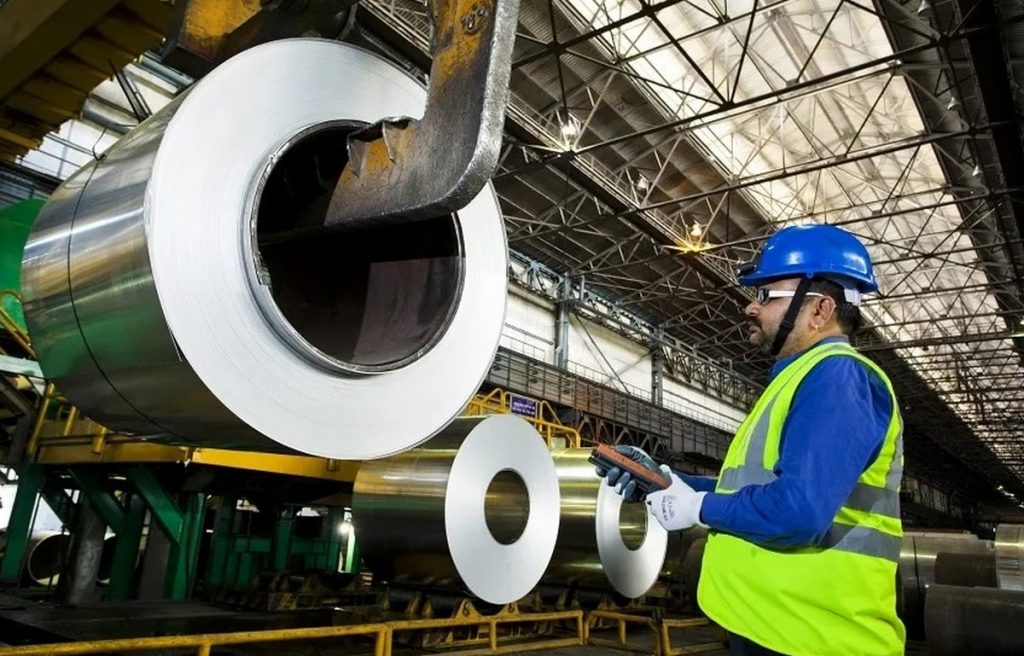The EU’s implementation of the CBAM, aimed at achieving net-zero emissions by 2050, threatens India’s position as a leading low-cost aluminum producer due to its higher emission intensity compared to European counterparts.
Indian aluminum manufacturers are taking steps to address GHG emissions, but CBAM’s implementation and growing capacities in Middle Eastern countries still pose challenges for their competitiveness.
Amid sluggish demand and a subdued price of aluminum, Indian aluminum industry faces further challenges with the upcoming CBAM implementation and decline in international thermal coal prices, impacting their cost advantage.
The EU’s implementation of the Cross-Border Adjustment Mechanism (CBAM) poses a significant challenge to India’s aluminum industry and the global price of aluminum. The move stems from the EU’s eagerness to tackle carbon and achieve net-zero emissions by 2050. However, as one of the leading low-cost aluminum producers, India faces a considerable setback due to CBAM. Indeed, the subcontinent produces 4.1 million tons of primary aluminum annually, exporting roughly 56%.
India’s annual primary aluminum output represents 6% of global production. The country’s competitive advantage as one of the lowest-cost producers of aluminum relies on its integrated operations and the utilization of coal-based captive plants for power generation. But primary aluminum production is an extremely energy-intensive process within the metals and mining industry.
Media reports say the EU’s adoption of CBAM puts India’s position at risk due to the country’s higher emission intensity when compared to its European counterparts. Currently, the emission intensity gap between Europe and India is approximately 14-15 tCO2/t Al, which means that Indian manufacturers would face an additional cost of US $1,500 – $1,600 per ton of aluminum. Consequently, this new regime will likely have significant adverse effects on Indian aluminum manufacturers.
In response to the challenges presented by CBAM, several Indian manufacturers, including Vedanta, Hindalco, and NALCO, have taken steps to address GHG emissions. For instance, Vedanta recently set a goal to achieve a 25% reduction in absolute emissions by 2030 compared to the levels in FY2021. Similarly, Hindalco aims to lower specific GHG emissions by 25% by 2025, using FY2012 as the baseline.
But despite these efforts, expanding capacities among Middle Eastern countries is expected to provide the region’s producers a competitive advantage over their Indian counterparts once CBAM takes effect. This poses further challenges for Indian manufacturers looking to maintain their competitiveness in the face of increasing opposition.
The EU currently plans to implement CBAM starting on October 1, 2023. According to CRISIL, a research and rating agency, the new policy contributes to an increasingly bleak outlook for Indian aluminum manufacturers. Aside from potentially affecting the price of aluminum, exporters will likely see their competitiveness in the European market impacted.
To maintain competitiveness, Indian aluminum exporters must embrace sustainable practices and technologies that effectively reduce emissions. This shift towards sustainability is crucial for Indian manufacturers to navigate the challenges imposed by CBAM. It ensures their continued presence and success in the international marketplace.
India’s aluminum industry will likely face challenging times ahead due to various factors. Among these are sluggish demand and a subdued price of aluminum. Despite expectations for a recovery in the second quarter of 2023, the demand for aluminum in sectors like building, construction, and packaging has remained weak.
Tags: CBAM, eu, Fossil Fuels, India



Recent Posts
ClassNK Advocates Speed Gap Monitoring to Optimize Fuel Efficiency in Heavy Weather
Wärtsilä’s retrofit package for the Corsica Linea ferry Pascal Paoli has resulted in fuel savings of up to 22 percent Corsica Linea
COSCO Shipping Names Second Methanol Dual-Fuel Containership in Yangzhou
Sallaum Lines Takes Delivery of LNG-Powered Car Carrier Ahead of Schedule
UK Government Allocates £30 Million to Advance Clean Maritime Technologies and Support Coastal Communities
Final Indigenous Pollution Control Vessel ‘Samudra Prachet’ Launched by Goa Shipyard for Indian Coast Guard
TSUNEISHI Launches World’s First Methanol Dual-Fuel KAMSARMAX Bulk Carrier in the Philippines
Grimaldi Group Launches Ammonia-Ready Car Carrier Grande Shanghai in China